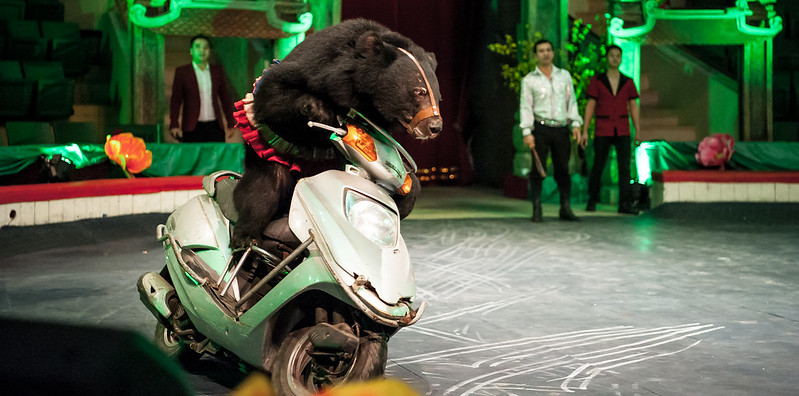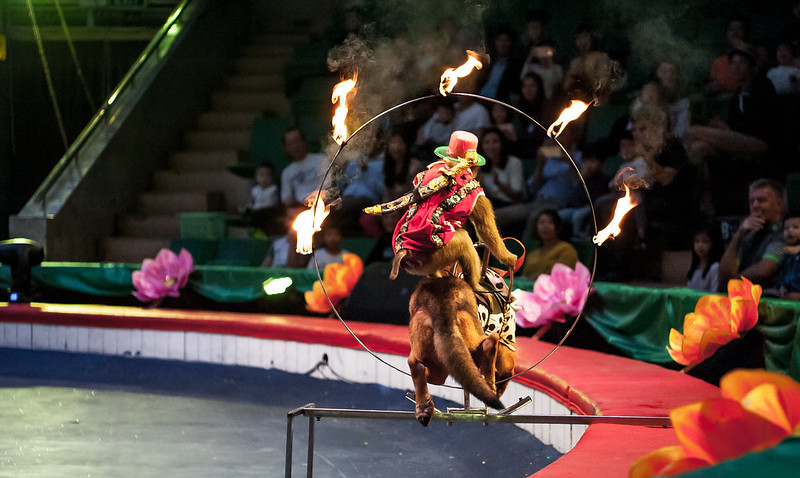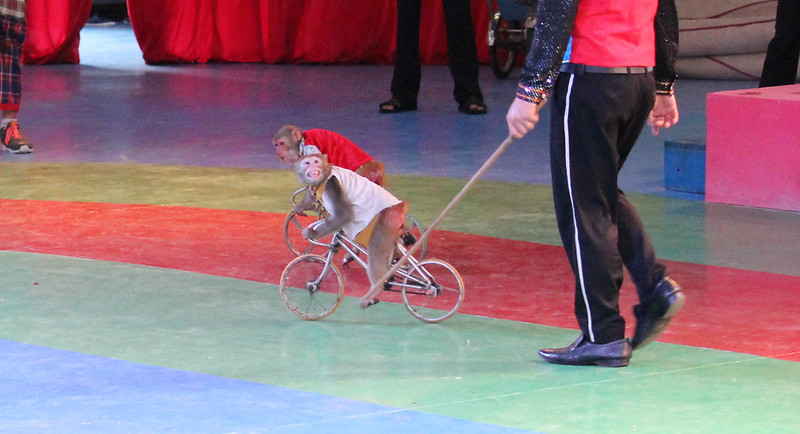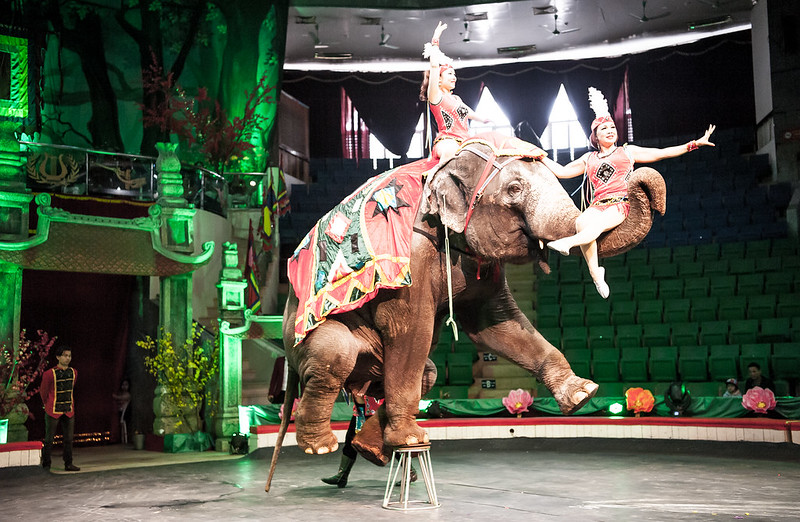PETITION: Release of explosive report could mark end of wild animal performance in Vietnam
13 June 2018
Report reveals widespread abuse of protected species – with one venue already under investigation, sign now to demand the end of wild animal performance.
Animals Asia’s 2017 report into animal performance in Vietnam – now released publicly for the first time – found 19 species being forced to perform unnatural behaviours and held in poor living conditions at 16 facilities across Vietnam – some of which are funded by the government.
The report found that 100% of the facilities failed to meet the minimum basic needs of the animals in their care.
In Vietnam, hundreds of animals perform under conditions of fear and violence including six protected species: moon bears, elephants, orangutans, macaques, pythons and crocodiles.
With trade and commercial exploitation of these species prohibited in Vietnam, questions have been raised as to where the facilities have sourced their animals. The poaching or importation of these species is a criminal offence in the country.
Animals Asia Animal Welfare Director Dave Neale said:
“Vietnam simply cannot allow this level of apparent wildlife crime to carry on so blatantly in full view without challenge.
”We are calling for the authorities to investigate the origin of all protected species being forced to perform and to join many other countries around the world in banning wild animal performances completely.”
Animals Asia’s report was shared with the Vietnamese government in late 2017 but not released publicly as the NGO tried to work with the authorities and individual facilities to improve the conditions for animals on the ground.
However, due to a lack of progress, Animals Asia made the decision to publicly release the report in June 2018 and called on the authorities to take action.
One theme park has already announced its animal performances have been suspended while the Ministry of Culture, Sports and Tourism investigates the origin of an orangutan forced to ride a bicycle and spin plates on his fingers.
Orangutans are not native to Vietnam and records show only three individuals have been imported to the country since 1998. No records exist of captive orangutans being successfully bred in Vietnam.
CITES regulations stipulate that as an Appendix I protected species, orangutans cannot be imported for commercial purposes such as animal performances.
Cruel performances uncovered by the report include:
- Macaques forced to ride bicycles, jump through flaming hoops, compete in swimming races and be chained to dogs or even ostriches
- Young moon bears bound by leather muzzles, dressed in skirts and forced to ride motorbikes or jump through flaming hoops
- Elephants performing headstands
- An orangutan spinning plates on his fingers, balancing a plate from a knife in his mouth and riding a bicycle
- Humans putting their heads into the mouths of crocodiles
Animals performing at Vietnamese facilities were observed displaying abnormal signs of stress and trauma including head swaying and even self-harm.
Human handlers were seen using physical abuse to maintain control of the animals including:
- Striking of elephants, macaques and bears who refused to perform tricks
- Dragging macaques around the circus arena using ropes and chains tied around their necks
- Kicking, hitting and dragging crocodiles around arenas with ropes around their necks
When not performing, the animals were kept in entirely unsuitable conditions. Typically they were both chained and caged with no access to food or water and with no mental stimulation or social interaction with their own species.
Animals Asia’s Vietnam Director Tuan Bendixsen said:
“Animals Asia wants to see an outright ban on the use of wild animals in circuses nationwide. Suspected wild capture, abusive training and poor living conditions are a toxic mix of illegality and animal cruelty which no country or society should have to accept.
“Vietnam does not benefit from animal performance; instead the outdated form of entertainment only serves to mislead the public about the true nature of some of the world’s most iconic species and provides a cover for wildlife crime.”
Earlier this year, a UNESCO-accredited national park in Vietnam finally ended macaque performances following a year-long campaign by Animals Asia and a petition signed by over 43,000 people.

Nearly 50 countries including Bolivia, Croatia, Costa Rica, Greece, and most recently Scotland, have joined the ever-growing list of countries to ban cruel wild animal circuses.
Should Vietnam’s animal performances be made illegal, Animals Asia would be ready to assist in the rescue of retired animals. Bears could be immediately housed at Animals Asia’s award-winning Vietnam Bear Rescue Centre, while elephants could be transferred to the Elephant Conservation Centre in Dak Lak, where Animals Asia is a key advisor on animal welfare.
Now is the time to call for change. Ask the Vietnam government to end the cruelty and wildlife crime by banning wild animal performances, and allowing the animals to be sent to sanctuaries and rescue centres.
BACK








